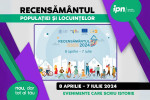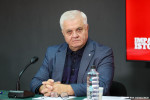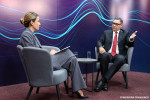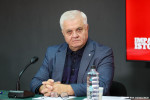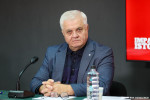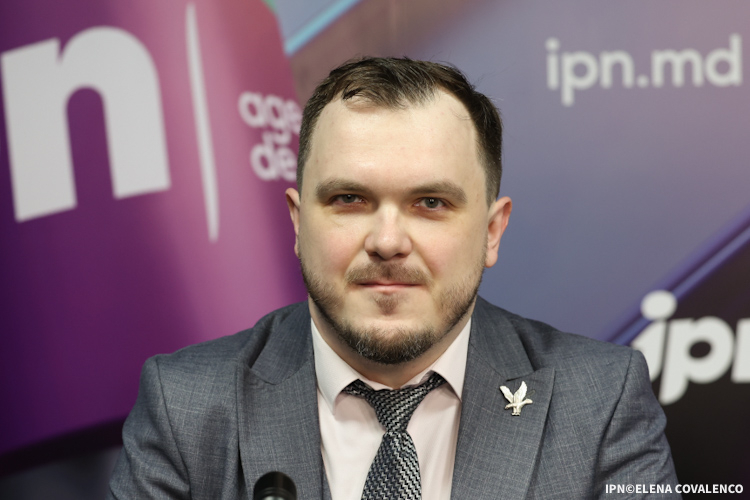
It’s a strange feeling—to wait for something almost your entire life, and when it finally happens, to feel not relief, but anxiety. Europe is getting closer. Decades of talks, manipulations, hesitations. The people have said "Yes." Flags have been hung, speeches delivered, Ursula von der Leyen’s photo is everywhere online.
And here you are, standing in front of the door that has finally opened. And you realize: you're scared. Not because you’re “fundamentally opposed.” But because this new phase brings too many unknowns. Because the question “what happens tomorrow” is no longer rhetorical, but a real path ahead.
Because reality is more complex than slogans. And because inside every “yes” hides a pile of “buts.”
A Few Fears That Aren’t Voiced from the Podium
Public discourse is now full of triumphant rhetoric: historic moment, strategic choice, consensus, a return home. All of this may be true—but it’s not the whole truth.
Honestly, as a society, we’re entering this new phase not only with hope, but also with many worries. And that’s normal. In fact—it’s healthy, as long as we don’t suppress these fears but reflect on them.
There are several fears we keep hearing almost every day:
-
The fear of losing ourselves. What will happen to our identity, built from many little “this is how we do it here” moments, if integration means restructuring something large and becoming part of that large whole? Some might say that when top-down rules and norms arrive and what’s local is left only in the kitchen for private gatherings—haven’t we been here before? And if we have, what’s the difference this time? Maybe that’s worth talking about.
-
The fear of being left alone—or of aging in general. This fear deepened after the 2024 census results. Migration in Moldova is nothing new, and no sane person is seriously blaming those who leave or demanding restrictions on mobility. But the integration perspective seems to “legitimize” departure almost automatically. Many fear that for young people, the EU isn’t about reforms—it’s just a ticket to Warsaw/Berlin/Milan/Amsterdam, with no return. And sure, “they’ll leave anyway if they really want to,” but it takes more effort now—soon, it’ll be easy to just hop on a plane. And just as easy to return.
-
The fear of new rules. Bureaucracy, standards, oversight, reporting, procedures. All of this feels far removed from how Moldova’s public institutions currently operate. “What if we simply can’t handle it?” “There are fewer than a million working-age people left—how many of them are truly ready to work in the public sector?” These are questions with many difficult—and often uncomfortable—answers.
-
The fear of disappointment. What if it’s all an illusion? What if we join and life doesn’t improve? After all, the EU isn’t Santa Claus or a fairy godmother in a blue helicopter. The EU hasn’t promised anything beyond a shared set of rules and hasn’t guaranteed anything except the need for a lot of work. Churchill’s line about “blood, sweat, and tears” might be the most honest formula for building even a slightly brighter future in our 2025.
-
The fear of change in general. Some people are simply comfortable in the status quo. Even if it’s imperfect, unclear—even if “it’s better to be first in the village than last in the city.” Change is scary, even when it’s for the better. People don’t trust the state—because over more than thirty years, each person has their own story that made them stop believing. And on social media, some bloggers talk about how hard life in Europe really is. And they’re often more trusted—after all, bloggers aren’t the state, they have no reason to lie. Or do they?
Still, these fears are not a reason to panic—nor to throw accusations of political bias. When someone is afraid, they rarely think their fear is ideologically driven. Usually, it means someone touched a raw nerve. And we have many raw nerves. No miracle cure exists. The problem is, the same people who sell fear are often the ones offering the “cure.” And they are believed.
So maybe, today, right now, is the time to have a grown-up conversation? For instance, about how the EU isn’t a promised land, not Eden, not Valhalla, where everything will automatically be good—but simply the first exam in a long session, with a focus on economics and many social sciences. And that to this exam, people bring all their baggage—including the question: “Am I doing the right thing?”
Maybe it’s also time to drop the idea that “someone else is to blame for everything bad, and I’m just a small person who can’t change anything.”
Small Stories, Big Feelings
A few days ago, I overheard two elderly women talking on the trolleybus. One said: “Well, at least we’ll get into Europe now.” The other replied: “What do you mean ‘get in’? Do you think your pension will suddenly be like in Germany?” That’s not a joke and not skepticism—it’s everyday logic. Simple, human, without strategy maps or policy papers.
Or another example: in my work, I often request data from public institutions. Several times, I’ve received large volumes of figures in Microsoft Word files, with hand-drawn tables that are impossible to work with. Why complicate things? There’s Excel—but you need to know how to use it. Everyone knows Word. And a good accountant, economist, or sociologist will find a better-paid job outside public service, right?
These stories aren’t attempts to hit where it already hurts. They show the disconnect between big ideas and daily life. And it’s exactly in that disconnect where most Moldovans live today—regardless of income or political views.
So What Now?
After the referendum begins a stage that politicians rarely talk about: the phase of adult work. Not inspiring, not heroic—just exhausting and gray, like a typical bureaucrat’s suit.
There are no stirring slogans here, but there are essential questions—thousands of them. For example:
– Is the state apparatus ready to adapt to the European legislative framework? Acquis Communautaire isn’t just a fancy phrase in French—it’s a collection of very specific standards. And how many people truly understand what that means? Or will we wait for paid propagandists to explain it on social media?
– Who will communicate with society—and how? In multiple languages, through various means, acknowledging mistakes and difficulties, without arrogance or the feudal mentality that still lingers in Moldovan politics?
– How do we keep people feeling involved—instead of repeating “we voted at the referendum, so now we have to,” offer concrete explanations of how things were and how they’ll change?
The 2025 outlook is, without a doubt, not about immediate accession. It’s about preparing for a marathon—mentally and technically. Because integration is not a finish line—it’s a long path.
The EU Is Not a Magic Wand—But a Tool
It may sound cliché, but it’s worth repeating: the European Union is not salvation, not the Holy Grail, not a leprechaun’s chest of endless gold—it is only an opportunity. It won’t solve our problems for us, but it will give us tools—if we know how to use them. And yes, it’s possible to join the EU and barely use its offerings, settling for access to a few funds. It happens. Let’s hope it won’t be us.
The EU won’t eliminate corruption if we’re still used to “fixing things informally.” The EU won’t build fair courts if our justice system stays the same. With all due respect, Laura Codruța Kövesi won’t stand over every Moldovan prosecutor. No one will—except for a new set of norms and laws.
The EU won’t revitalize rural areas more than the people who live there and want life to thrive around them.
Becoming part of Europe is not a purchased service or a political barter—it’s an agreement to work together. Not with Brussels—because bureaucrats simply work with whatever system exists—but with ourselves.
The Age of Maturity, or When Are We No Longer Young?
We are on the threshold of entering adulthood in our personal history. It’s about time—34 years (counting from 1991) marks, by modern standards, the end of youth.
We used to play games: “good and bad government,” “they didn’t hear us,” “let someone else fix it,” or even blaming some politician for stealing light bulbs from the stairwell. But not anymore. You probably wouldn’t want to work every day with a 34-year-old who constantly complains about life and insists that everyone else is to blame.
The fear of Europe is, in truth, the fear of taking responsibility. Responsibility we’ll have to bear—even when we don’t want to. Because if it used to be the East, the West, the climate, the IMF, or some faraway capital that was at fault—now it’s simpler and clearer: to act or not to act—that’s our decision.
But freedom is a scary thing. And not everyone likes it.




